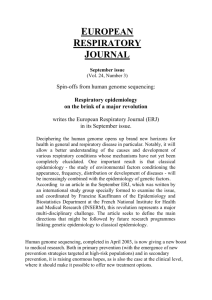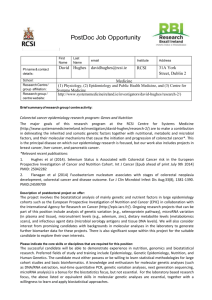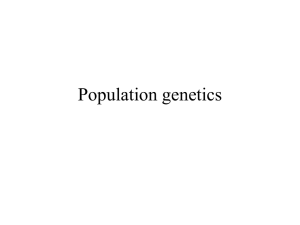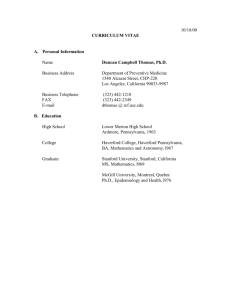Compare/Contrast Specialized Areas of Epidemiology – Genetic
advertisement
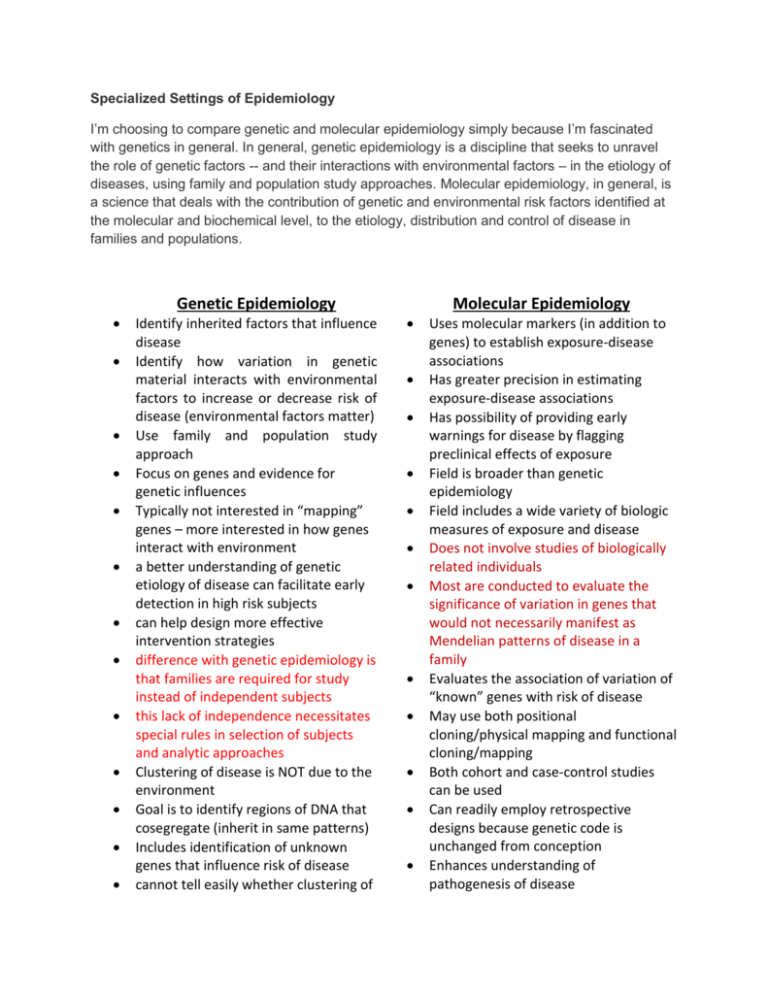
Specialized Settings of Epidemiology I’m choosing to compare genetic and molecular epidemiology simply because I’m fascinated with genetics in general. In general, genetic epidemiology is a discipline that seeks to unravel the role of genetic factors -- and their interactions with environmental factors – in the etiology of diseases, using family and population study approaches. Molecular epidemiology, in general, is a science that deals with the contribution of genetic and environmental risk factors identified at the molecular and biochemical level, to the etiology, distribution and control of disease in families and populations. Genetic Epidemiology Identify inherited factors that influence disease Identify how variation in genetic material interacts with environmental factors to increase or decrease risk of disease (environmental factors matter) Use family and population study approach Focus on genes and evidence for genetic influences Typically not interested in “mapping” genes – more interested in how genes interact with environment a better understanding of genetic etiology of disease can facilitate early detection in high risk subjects can help design more effective intervention strategies difference with genetic epidemiology is that families are required for study instead of independent subjects this lack of independence necessitates special rules in selection of subjects and analytic approaches Clustering of disease is NOT due to the environment Goal is to identify regions of DNA that cosegregate (inherit in same patterns) Includes identification of unknown genes that influence risk of disease cannot tell easily whether clustering of Molecular Epidemiology Uses molecular markers (in addition to genes) to establish exposure-disease associations Has greater precision in estimating exposure-disease associations Has possibility of providing early warnings for disease by flagging preclinical effects of exposure Field is broader than genetic epidemiology Field includes a wide variety of biologic measures of exposure and disease Does not involve studies of biologically related individuals Most are conducted to evaluate the significance of variation in genes that would not necessarily manifest as Mendelian patterns of disease in a family Evaluates the association of variation of “known” genes with risk of disease May use both positional cloning/physical mapping and functional cloning/mapping Both cohort and case-control studies can be used Can readily employ retrospective designs because genetic code is unchanged from conception Enhances understanding of pathogenesis of disease a risk factor or disease within a family is due to genetics, culture, or shared environment (including social or political factors) Can utilize case-control studies, family studies, twin studies, linkage analysis (works well for diseases that follow simple rules of inheritance – i.e. autosomal dominant or recessive), segregation analysis Results are NOT generalizable to the public at large May utilize both functional and positional cloning Defines genetic susceptibility with molecular markers – not surrogate information (i.e. family history) Improves validity and reduces bias for assessment of environmental exposure Allows for evaluation of subclinical or early disease markers Reduces heterogeneity in classification of diseases in descriptive studies Provides new standards for descriptive epidemiology - Using molecular tests allow diagnostic criteria employed to identify cases of disease results in more homogenous groups Improves precision in analytical epidemiology - Contribution of genetic and environmental factors and their interaction to the risk of developing disease can be more accurately assessed
